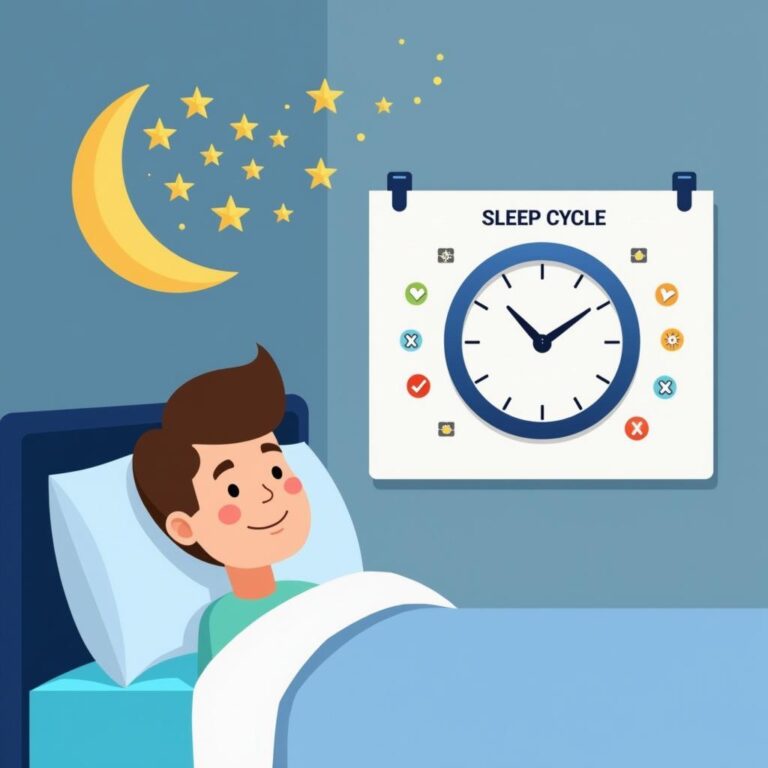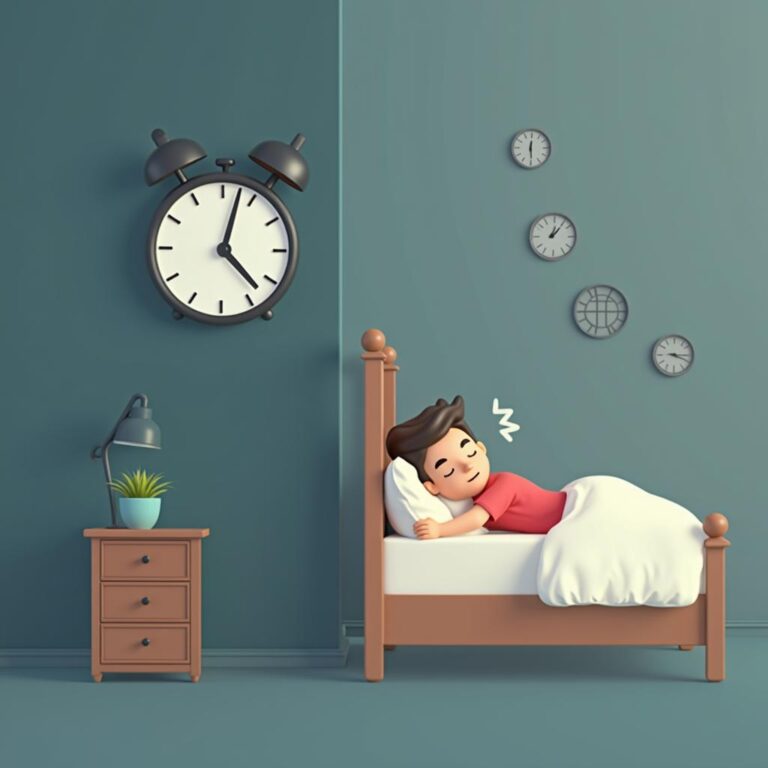In our fast-paced world, maintaining focus and energy throughout the day is critical. One of the most effective yet often overlooked methods to enhance mental clarity and productivity is regulating sleep cycles. In this article, we will explore how to regulate sleep cycles for focus and energy, ensuring you wake up refreshed and ready to take on the day.
Understanding Sleep Cycles
Before diving into the strategies for regulating sleep cycles, it’s essential to understand what sleep cycles are. Sleep goes through several stages, collectively known as sleep cycles, which last approximately 90 to 110 minutes. Each cycle includes:
- Light Sleep: This is the transition phase where you drift in and out of sleep.
- Deep Sleep: This is crucial for physical recovery and regeneration.
- REM Sleep: Rapid Eye Movement sleep is essential for memory and emotional processing.
Regulating these cycles can significantly impact your overall focus and energy levels, so let’s explore effective strategies.
Establish a Consistent Sleep Schedule
One of the most straightforward methods to regulate your sleep cycle is to establish a consistent sleep schedule. Going to bed and waking up at the same time every day helps to harmonize your internal clock, also known as the circadian rhythm. Here are some tips for setting a consistent schedule:
- Determine Your Ideal Sleep Duration: Most adults need between 7 to 9 hours of sleep. Identify how much sleep works best for you.
- Set a Regular Sleep Time: Choose a time to go to bed and wake up that you can stick to, even on weekends.
- Limit Naps: If you need to nap, keep it under 30 minutes, and do not nap late in the day.
Create an Optimal Sleep Environment
Creating a conducive environment for sleep is vital in regulating sleep cycles. Here’s how to enhance your sleep environment:
- Darkness: Use blackout curtains or a sleep mask to block out light that can interfere with melatonin production.
- Quiet: Consider using earplugs or white noise machines to drown out disruptive sounds.
- Temperature: Keep your bedroom cool. The ideal sleeping temperature is generally around 60-67°F (15-20°C).
Limit Screen Time Before Bed
The blue light emitted by screens can disrupt your body’s production of melatonin, a hormone crucial for regulating the sleep-wake cycle. To enhance focus and energy the next day, it’s essential to limit screen time before bed. Here are some effective strategies:
- Set a Screen Curfew: Aim to stop using electronic devices at least an hour before bedtime.
- Use Blue Light Filters: If you must use screens, consider apps or settings that reduce blue light emission in the evening.
- Engage in Relaxing Activities: Replace screen time with calming activities such as reading a physical book or performing relaxation exercises.
Incorporate a Pre-Sleep Routine
A pre-sleep routine signals to your body that it’s time to wind down. Regularly practicing calming activities can help transition your body into sleep mode:
- Reading: Choose a calming book to help relax your mind.
- Gentle Yoga or Stretching: These practices can ease tension and promote relaxation.
- Meditation or Deep Breathing: Incorporating these methods assists in reducing anxiety, making it easier to fall asleep.
Be Mindful of Food and Drink
What you consume can significantly impact your sleep quality. To enhance focus and energy, mindfully consider your food and drink choices:
- Avoid Caffeine Late in the Day: Caffeine can stay in your system for several hours; try to limit its consumption after midday.
- Limit Alcohol Intake: Although alcohol may initially make you feel drowsy, it can disrupt your sleep later in the night.
- Opt for Light Snacks: If you’re hungry before bed, a light snack, such as bananas or almonds, can promote sleepiness without overloading your digestive system.
Get Regular Exercise
Exercise is known to promote better sleep quality. Regular physical activity helps to regulate sleep cycles and can improve both mood and energy levels. Here’s how to incorporate exercise effectively:
- Choose the Right Time: Aim for moderate exercise earlier in the day. Avoid intense workouts close to bedtime.
- Find Activities You Enjoy: Whether it’s walking, cycling, or dancing, find physical activities that keep you engaged and motivated.
- Consistency is Key: Aim for at least 150 minutes of moderate aerobic activity each week to see improvements in sleep quality.
Monitor Your Stress Levels
High stress can have a detrimental effect on your ability to fall asleep and stay asleep. Here are some tips for managing stress:
- Identify Stressors: Recognizing what causes your stress allows you to develop strategies to manage it effectively.
- Practice Mindfulness: Engaging in mindfulness techniques can help reduce anxiety and improve overall emotional well-being.
- Seek Professional Help If Needed: If stress or anxiety becomes overwhelming, consider consulting a mental health professional.
Conclusion
In conclusion, regulating sleep cycles is vital for enhancing focus and energy levels. By establishing a consistent sleep schedule, creating an optimal sleep environment, and implementing healthy lifestyle changes, you can improve the quality of your sleep and, in turn, your mental clarity and productivity. Remember, small consistent changes lead to significant improvements over time, allowing you to seize each day with renewed focus and energy.







